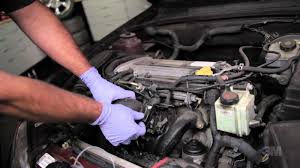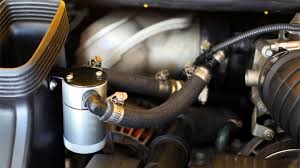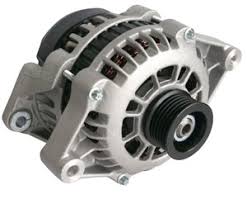Most causes of high oil pressure you should know to avoid engine damage. If your car is running too hot or making odd noises, high oil pressure may be at fault. Don’t worry! There are several possible causes of high oil pressure, and most of them can be easily diagnosed with a few simple tests. If you know the cause of high oil pressure on your vehicle, you won’t have to shell out hundreds (or even thousands) of dollars for repairs that don’t need fixing right away.
An oil pressure gauge is a great tool for monitoring the state of your engine.
An oil pressure gauge is a great tool for monitoring the state of your engine. It measures the pressure of oil in an engine and can help you determine if your engine is in good condition.
When the cause is a bad pressure regulator, it’s easy to tell by having a mechanic perform a diagnostic.
If the cause of high oil pressure is a bad pressure regulator, it’s easy to tell by having a mechanic perform a diagnostic. The pressure regulator is a mechanical part that regulates the pressure of your engine’s oil. It usually sits near where you would find your oil filter on most vehicles.
A bad oil pump can also cause high oil pressure.
The oil pump is a small motor that pumps oil from the sump to the camshafts. It’s usually located at the front of the engine and connected to the crankshaft. The timing belt or chain is used to drive it. Read also : Six Symptoms of a bad fuel pump in your car
If you have an older engine, your oil pump may be leaking, which will cause excessive pressure in your system. You can check this by putting a pan underneath your vehicle before you start it up and checking for leaks after several minutes of driving it around on dry pavement. If there are no leaks, then it could be as simple as having too much tension on one of your belts or chains causing them not working properly anymore — but if there are signs of leakage (such as oily puddles under your car), then you should take it into mechanic right away so they can inspect what needs fixing!
When an engine’s oil gets dirty or old, the oil will break down, leaving less flow and increased pressure.
When an engine’s oil gets dirty or old, the oil will break down, leaving less flow and increased pressure. This can be caused by a number of things:
- Oil thickness is too thin. If an engine’s oil is too thin, it might not lubricate well enough to prevent friction in your engine. Thinner fluid drains out faster than thicker fluid (because there are more molecules per volume), so your car may need more frequent changes if you use a thinner grade of oil than recommended by your manufacturer.
- Oil thickness is too thick. On the other hand, if an engine’s oil is too thick for your driving habits and climate conditions—such as cold weather when you live in Florida—it won’t flow freely through tight passages on cold start-ups and may result in high pressure readings from worn seals and gaskets because they can’t expand properly against hardened steel surfaces due to lack of movement from viscosity resistance from thickened oils that don’t allow free movement between parts during startup where temperatures rise rapidly causing expansion during use which reduces tension between moving parts thus increasing wear rate over time until too much has been damaged already requiring premature replacement before necessary maintenance allows further damage so next maintenance interval should be sooner than expected due to excessive wear caused by improper viscosity selection; however this could also just be bad seals/gaskets which would mean replacing those instead – still worth checking though since replacing them now rather than later might save some money depending on how expensive they are
Oil pumps that have been poorly maintained can also result in high oil pressure.
The most common cause of high oil pressure is an oil pump that has been poorly maintained. Oil pumps can be damaged by overheating and using the wrong kind of oil, like a synthetic blend instead of straight SAE 30 petroleum. They can also be damaged by running the engine with the wrong filter or failing to change it regularly (the intervals will vary depending on what type of car you drive).
Badly installed gauges can cause higher readings than are actually happening.
- Badly installed gauges can cause higher readings than are actually happening. The gauge can be installed incorrectly, in a location that is not accurate or shielded from temperature changes and vibration.
If you check your manual and find that your car is not operating within the recommended RPM range, you may be getting an inaccurate reading.
If you check your manual and find that your car is not operating within the recommended RPM range, you may be getting an inaccurate reading. The oil pressure gauge is a good tool to help you diagnose problems. If the gauge is reading higher than normal, you may have a problem with your engine’s bearing or main seal. If it’s reading lower than normal, then it could be due to worn bearings and/or low oil pressure as well as poor cooling fan performance and inadequate air flow around the engine block causing overheating issues. Check your manual for recommended operating range before attempting any repairs yourself!
Sometimes low fuel levels can cause false readings as well.
It’s also important to note that an extremely low fuel level can cause a similar problem. When you have such a low fuel level, the oil pump will be working harder than usual. This is because there isn’t enough oil in the engine for it to cover the pistons properly. So, even though your vehicle has sufficient oil in its reservoir, if there isn’t enough of it moving through your engine then you’ll get false readings and potentially cause damage to your car’s internal components. Read More: Symptoms of Blown Piston Ring
Blocked passageways and holes that are supposed to drain will cause the pump to work harder to keep oil moving through them.
In this case, the oil pressure regulator is a valve that regulates the flow of oil. When it is not working correctly, it can cause high oil pressure in your vehicle. In addition, if your filter is clogged, the pump has to work harder to keep oil moving through it.
Another cause of high oil pressure is a blown head gasket or cracked block. When these occur, they create steam from hot gasses escaping into the cooling system and reduce engine efficiency by raising coolant temperatures beyond what they should be operating at. This leads to increased wear on engine parts which increase friction between moving surfaces which again results in higher operating temperatures causing even more friction until eventually something breaks! You’ve got yourself an overheating engine with no way out except replacing damaged parts (which could cost upwards $1k+).
Conclusion
High oil pressure is a common problem and can cause serious damage if not addressed. If your car’s gauge reads over 50 psi, then you should have it checked immediately by a mechanic. The cause of high pressure may be easily identified, or it may require additional testing before determining what repairs are needed.







